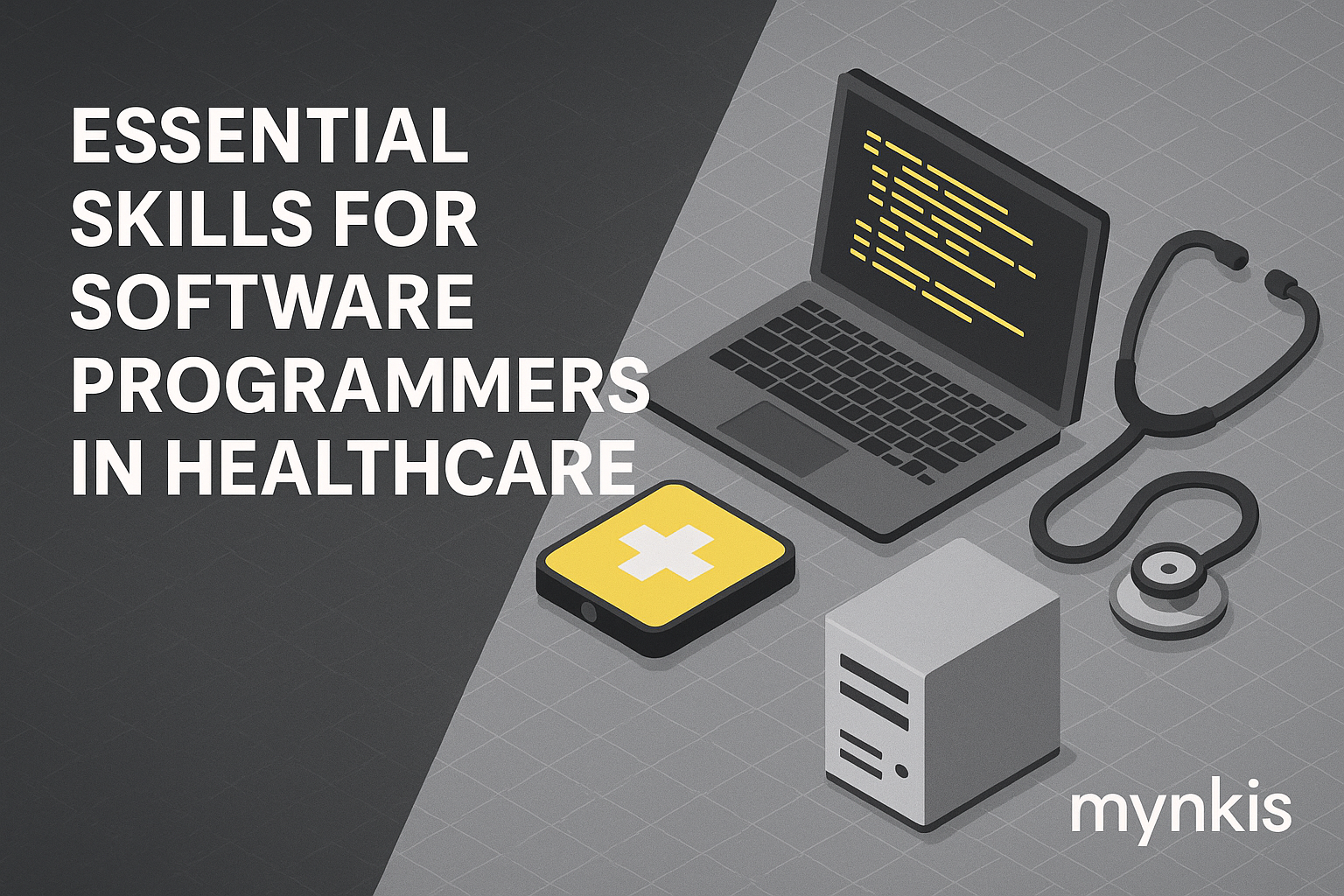Schedule a Demo
When you're scaling the digital mountains in the health sector, one of the first skills you need in your toolkit is proficiency in programming languages. Languages like Java, Python, or JavaScript are not just buzzwords; they are fundamental to creating robust, secure websites and applications for clinics and hospitals. I've seen firsthand how well-versed developers can craft patient portals that are both intuitive and HIPAA-compliant, ensuring data protection at every layer.
Data security isn't just about installing the latest antivirus software; it's about a deep, intrinsic understanding of how to keep sensitive patient information safe. A software programmer skilled in cybersecurity practices, like encryption and secure coding, is crucial for healthcare institutions. Every line of code contributes to an impregnable fortress of data protection, safeguarding everything from patient records to diagnostic data against breaches.
In the labyrinth of healthcare regulations, software programmers need to be more than just coders; they must be compliance navigators. Proficiency in standards such as HIPAA is not optional; it's indispensable. Understanding how to integrate these compliance requirements into software development from the outset ensures that the systems clinics and hospitals rely on are not only functional but also legally sound.
Much like a skilled librarian, a programmer must excel in managing databases. For healthcare institutions, where patient data needs to be both accessible and secure, this skill becomes paramount. Efficient database management leads to seamless operations—from appointment scheduling to managing patient records. It's the backbone of any effective patient portal or data management system.
The cloud is no longer the future; it's the present, and for healthcare software development, embracing cloud technologies is a game-changer. With scalability and flexibility at the forefront, cloud platforms allow clinics and hospitals to manage and store data securely and efficiently. Understanding cloud infrastructure and services like AWS or Azure can significantly enhance the functionality of software solutions tailored to healthcare needs.
The look and feel of a website or software application can either entice users to engage more deeply or push them away. In healthcare, where clarity and ease of use are critical, user interface (UI) design becomes an essential skill. Programmers who also understand UI design principles can ensure that patient portals are intuitive, fostering better engagement and satisfaction with the platform.
Even the most technically adept coder needs to be a project manager at heart. Coordinating the development process, ensuring timely delivery, and keeping within budget constraints—these are all facets of what makes a healthcare project successful. For clinics and hospitals, where time often equals lives, effective project management can make a significant difference.
The term 'agile' might sound like corporate jargon, but in the context of software development for healthcare, it's essential. Agile methodologies allow teams to adapt quickly to changing requirements—a common scenario in healthcare. Being able to pivot without losing momentum is crucial for delivering custom software solutions that truly meet the needs of medical institutions.
APIs are the unsung heroes of software ecosystems, allowing different applications to communicate and share data seamlessly. For hospitals looking to integrate various healthcare systems, expertise in API integration can be the linchpin that makes everything work smoothly. A programmer's ability to connect systems effectively can streamline operations and improve patient care.
In the ever-evolving world of technology, continual learning isn't a luxury; it's a necessity. For software programmers focused on healthcare, staying updated on the latest trends and technologies can give them an edge. It's about staying relevant and pushing the boundaries of what software can do for medical institutions.
The most sophisticated code can be undermined by poor collaboration and communication. In healthcare software development, where multi-disciplinary teams are often involved, the ability to communicate effectively with colleagues, stakeholders, and end-users is vital. It ensures that the final product is not just technically sound but also meets the practical needs of the healthcare environment.
At the heart of every healthcare software project should be a deep focus on patient-centric solutions. From how data is presented to how users interact with the software, it's all about enhancing the patient experience. A programmer who understands this and can design with this focus in mind will create solutions that genuinely improve healthcare delivery.
Speed and performance can make or break a healthcare software system, especially in scenarios where every second counts. Programmers need to have a keen eye for optimization, from reducing load times to ensuring smooth operation under high load. This skill ensures that patient portals and data management systems remain reliable and effective, no matter the circumstances.
To stand out in the healthcare software development field, certain keywords can enhance your resume or online profile. 'Compliance', 'security', 'patient portals', 'HIPAA', 'database management', 'cloud', 'UI design', 'agile', and 'API integration' are terms that echo throughout the industry. Using these keywords strategically can help you connect with the right opportunities in the healthcare sector.
As we peer into the future of healthcare software development, we see a landscape rich with possibility. AI and machine learning for diagnostics, blockchain for secure data exchange, and virtual reality for medical training are just the tip of the iceberg. Staying ahead of these trends will be crucial for programmers who wish to play a key role in shaping the future of healthcare through technology.
